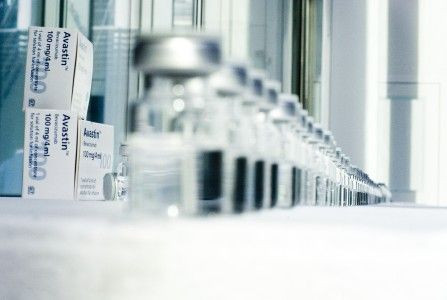Roche loses Avastin on account of 1.2-4.6 pct fatal bleeding

Roche, top-selling cancer drug maker has lost a case to use Avastin in first-line anti-breast cancer therapy for woman who have the disease. The drug however will remain on the market (beyond July 28) for use for lung, brain, kidney and colon cancers despite its loss today.
Avastin studies published last year failed to show the benefits of treatment under the FDA's approved use in Breast Cancer. The studies show that none of the four clinical trials following its use showed no sign of benefit despite researchers claiming it could improve the impact on growth/spread by up to 5 and a half months when compared with conventional chemotherapy alone.
Roche, a Swiss pharmaceutical company hopes to appeal the decision with the FDA commissioner who has final say in the matter. No date has been set for this final decision/hearing. The FDA commissioner, Margaret Hamburg will listen to public comments until July 28 and Roche intend to fight as demonstrations against it occured outside the FDA's meeting yesterday.
Roche failed to win its appeal on the grounds that overall survival nor disease progression was sufficiently prolonged/slowed to outweigh its risks, including the possibility of a severe bleed. "We remain ready to collaborate wtih the FDA to find a solution that is in the best interest of patients who need Avastin" said Hal Barron, M.D of Genentech, who manufactures it in collaboration with Roche.
The final approval on the drug was lost despite the commissioner recommending it in 2008 against it's advisers wishes, "I think we all wanted Avastin to succeed," said Natalie Compagni-Portis, an adviser of the FDA. "And yet what we have to do today is respond to the research that's been presented to us."
This research presented today outlined that Avastin caused severe to fatal bleeding in 1.2-4.6 pct of patients whilst not having a significant effect on cancer patients who used it.
The drug, which targetted 'angiogenesis' - the growth of blood cells in aggressively growing tumours, has been noted to cause the coughing up of blood in some patients which led to gastrointestinal 'perforations' in 0.3 to 2.4 pct. It had been refused approval for use in patients with similar bleeding problems.
"For therapies for cancer, we are willing to accept a high rate of toxicity because the diseases we are treating are so awful," Michael Sekeres, an FDA panel member and oncologist at the Cleveland Clinic in Ohio, said. "But that is predicated on therapy effectiveness.
The FDA which approved the drug in 2008, will now face disappointed breast cancer patients who will no longer be able to receive the drug under this ruling as insurance companies withdraw their support.
The Group meanwhile revealed a study which show their newest developments in subsidiary Genentech which allow diabetic patients to receive better prognosis from their latest drug to surface, Lucentis.
Related articles
CSHL team identifies enzyme that is an important regulator of aggressive breast cancer development
Roche's Genentech unit reports positive Lucentis trial data

Published by Medicaldaily.com



























